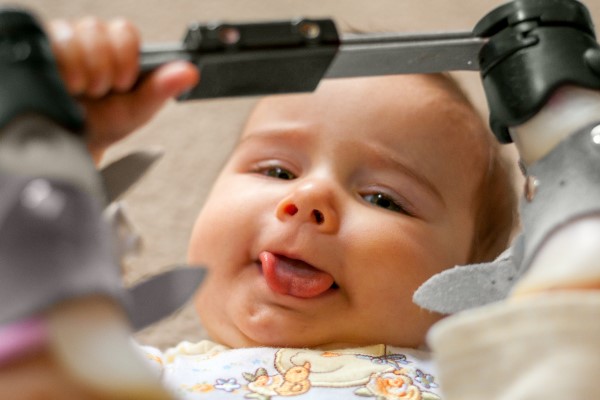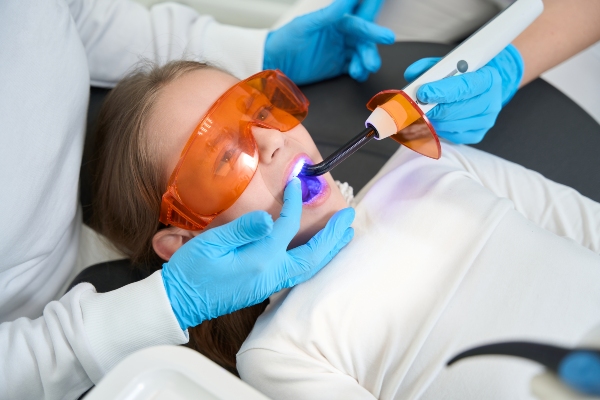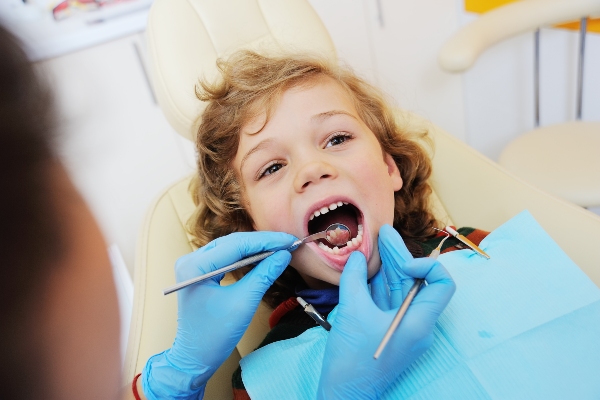How Long Does It Take a Baby to Recover from an Infant Frenectomy?

An infant frenectomy (also known as tongue-tie surgery) is a surgical procedure that improves your child’s ability to feed comfortably. This benefit has the knock-on effect of improving the child’s nutrition and overall health. Better still, a frenectomy can make nursing a whole lot more comfortable for both the baby and mother.
All this sounds great, but the thought of even the smallest of surgical procedures can stress out a new parent. One of the main concerns parents have is what to expect as their baby recovers from tongue-tie surgery.
What to expect from an infant frenectomy procedure
Some new mothers will notice their children struggle as they try to breastfeed. The wisest course of action for the mother is to first consult a pediatric dental specialist. The doctor will check whether or not the baby has a tongue-tie. If the child’s mouth is fine, they will likely recommend a lactation consultant.
If the child needs a frenectomy, the pediatric dental specialist will recommend that the child gets one as soon as possible. Here is what to expect from an infant frenectomy:
- The doctor will administer a topical anesthetic
- They will use a laser, cauterizing tool, or scissors to snip the small band of tissue that connects the tongue to the floor of the mouth
- If the doctor uses a scalpel or scissors, they may need to close the surgical site with a few sutures
- A laser or electrical cauterizing tool will close the surgical site as it cuts, which is why most doctors prefer these options
This quick, simple, in-office procedure takes around 15 minutes. The band of tissue that the doctor severs has few nerves or blood vessels. This means minimal pain and little bleeding. It also means that the baby’s recovery process should be uneventful.
Baby’s recovery period: What to expect
It takes between two or three weeks for the surgical site to heal completely. A laser frenectomy has an even shorter recovery period; the surgical site could heal fully in a week or two.
The doctor will provide thorough after-care instructions covering pain management, feeding, and cleaning the surgical site. They will prescribe pain medication for the baby and give detailed instructions on the dosage. The doctor will also ask the caregiver to monitor the baby for any signs of fever or infection.
Many babies can feed immediately after the frenectomy. Others may be more reluctant to breastfeed in the 24 hours that follow the procedure. By the third day, the infant should be feeding well. The caregiver should make sure to follow the after-care instructions provided to the letter.
The bottom line
Our practice specializes in minor surgical procedures like childhood and infant frenectomy. We offer diagnostic services, surgical procedures, after-care, and monitoring for all our young patients.
Get in touch with our dental office so we can schedule a consultation with our pediatric dental specialist to find out how we can take care of your child’s health as they grow.
Request an appointment here: https://www.hvkidsmiles.com or call Hudson Valley Pediatric Dentistry at (845) 363-4177 for an appointment in our Middletown office.
Check out what others are saying about our services on Yelp: Read our Yelp reviews.
Recent Posts
Dental fillings for kids restore the smile for years to come. Proper aftercare and consistent oral hygiene help to ensure your child gets the most out of their fillings. Thankfully, caring for these restorations is simple and straightforward, particularly with the help of a pediatric dentist.A dental filling is a dental restoration that “fills” cavities…
Dental fillings are a key part of protecting children’s oral health. When prevention efforts fail, this simple procedure stops cavities from doing further damage to dental health. Here, we take a closer look at the benefits of treating childhood tooth decay with dental fillings for kids.According to the Centers for Disease Control and Prevention (CDC),…
Cavities are a common dental health issue, and as kids learn to care for their teeth, they are often more prone to developing them. Dental fillings for kids can help avoid future oral health complications and protect their young smiles. Here are the basics of the treatment process that you should know as a parent…
Curious about dental fillings for kids? Read on to learn more. As your kid ages, you most likely have many questions about their overall health. Questions like "Are dental fillings for kids necessary?" or "What happens to baby teeth with nontreated cavities?" These are crucial questions to think about, and this article addresses them so…


